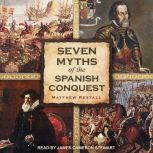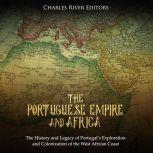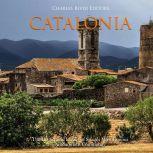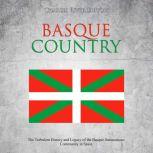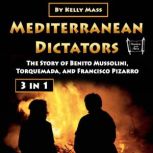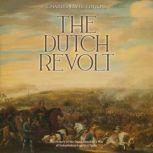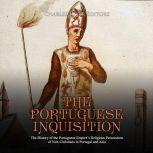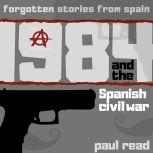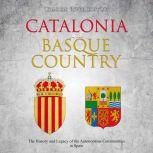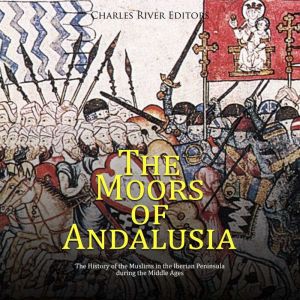
Details
The Moors of Andalusia: The History of the Muslims in the Iberian Peninsula during the Middle Ages
Author: Charles River Editors
Narrator: KC Wayman
Unabridged: 2 hr 11 min
Format: Digital Audiobook
Publisher: Findaway Voices
Published: 02/23/2023
Synopsis
The history of the Spanish Peninsula is closely bound to that of the Moors. The term “Spain” was not in wide use until the region was united by the monarchs of Aragon and Castile, and the Moors called the lands they ruled in the Iberian Peninsula Al-Andalus, traditionally thought to be an Arabic transliteration of Vandal, the Germanic tribe which briefly ruled the region in the early fifth century. The English name Andalusia derives from the Spanish Andalucia, which is still used by Spain to name its southern region.
Not surprisingly, three religions attempting to coexist during medieval times resulted in nearly incessant conflicts, marked by high taxation, disparate societies, rigid cultural controls, and systemic violence. Despite the odds, these three religions managed to live in a state of quasi-acceptance and peace in most of the major cities in the Iberian Peninsula like Cordoba and Toledo, with sporadic warfare occurring on the borders between Al-Andalus and the Christian kingdoms near the Pyrenees Mountains. Muslims, Christians, and Jews would attempt to reorganize their societies several times over the centuries through warfare, always with Jews on the lower rungs and Christians and Muslims fighting it out above them.
Though it’s often forgotten today, the fighting that took place during the Reconquista was not originally driven by religion. Instead, the majority of the battles were fought by ambitious rulers who sought territorial expansion, like many other civilizations during the Middle Ages. In fact, the Reconquista would not gain its unique religious flavor until the 13th century, when the territories that would become Castile and Aragon drummed up religious fervor to achieve its aims and gained papal support from Rome.
by Matthew Restall
Here is an intriguing exploration of the ways in which the history of the Spanish Conquest has been misread and passed down to become popular knowledge of these events. The book offers a fresh account of the activities of the best-known conquistador...
Published: 02/13/2018
by Charles River Editors
By the mid-15th century the Byzantine Empire had collapsed and the various Crusades that had taken place in the region had largely disrupted the overland routes of the Silk Road and trade. Compounding the difficulties of trade was the rise of the Ot...
Published: 03/20/2019
by Charles River Editors
Set in the northeastern corner of Spain and nestled next to France is the autonomous region of Catalonia. The name Catalonia is thought to mean the Land of Castellans (castlan means the governor of a castle), while another version of the story sugge...
Published: 12/30/2019
by Charles River Editors
It would not be a stretch to say that for a very tiny geographical territory (just 20,747 square kilometers), the Basque Country has inspired a plethora of intense stereotypes. Some of these stereotypes have been cast upon its people from the outsid...
Published: 03/20/2020
by Kelly Mass
These dictators all lived in Southern European countries. Meet the evil despots called:Benito Mussolini: Ironically, when we think of fascism, we often look at someone as brutal and influential as Adolf Hitler, but the word “fascism” ori...
Published: 02/21/2022
by Charles River Editors
The Netherlands has had a complex and turbulent history involving the interplay of multiple political entities, ethnicities, and languages. The term "Netherlands" (Nederland in Dutch, Pay-Bas in French) refers to the low-lying topography of the regi...
Published: 02/15/2021
by Charles River Editors
“Goa is sadly famous for its inquisition, equally contrary to humanity and commerce. The Portuguese monks made us believe that the people worshiped the devil, and it is they who have served him.” – Voltaire By the mid-15th century...
Published: 03/19/2019
by Paul Read
In 1937, George Orwell spent six months witnessing the rise and fall of a popular revolution on the streets of Barcelona and Catalonia. Alone amongst his contemporaries, Orwell understood what the success or failure of that Spanish Revolution would ...
Published: 03/02/2020
by Charles River Editors
Shaped like an uneven triangle, Catalonia is comprised of four provinces that occupy an area of 12,390 square miles: Girona, Barcelona, Tarragona and Lleida. Catalonia also has a variety of different kinds of communities surrounding it, as its nort...
Published: 03/20/2020

